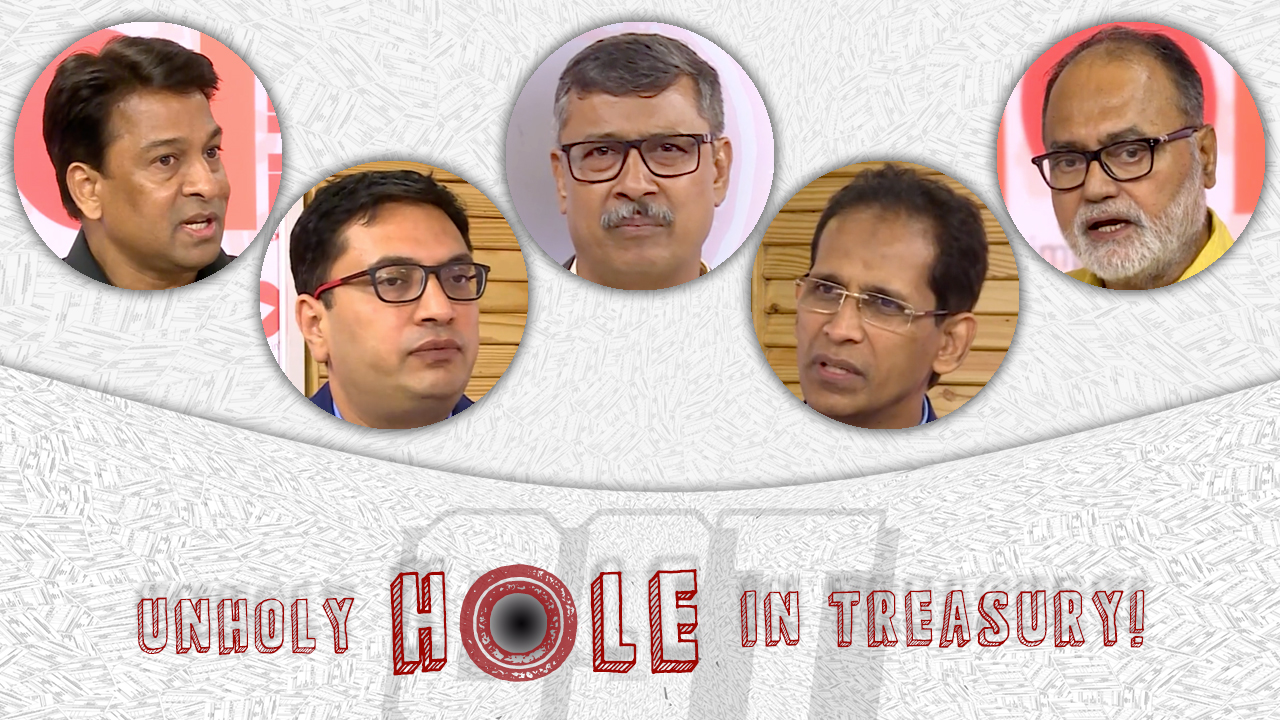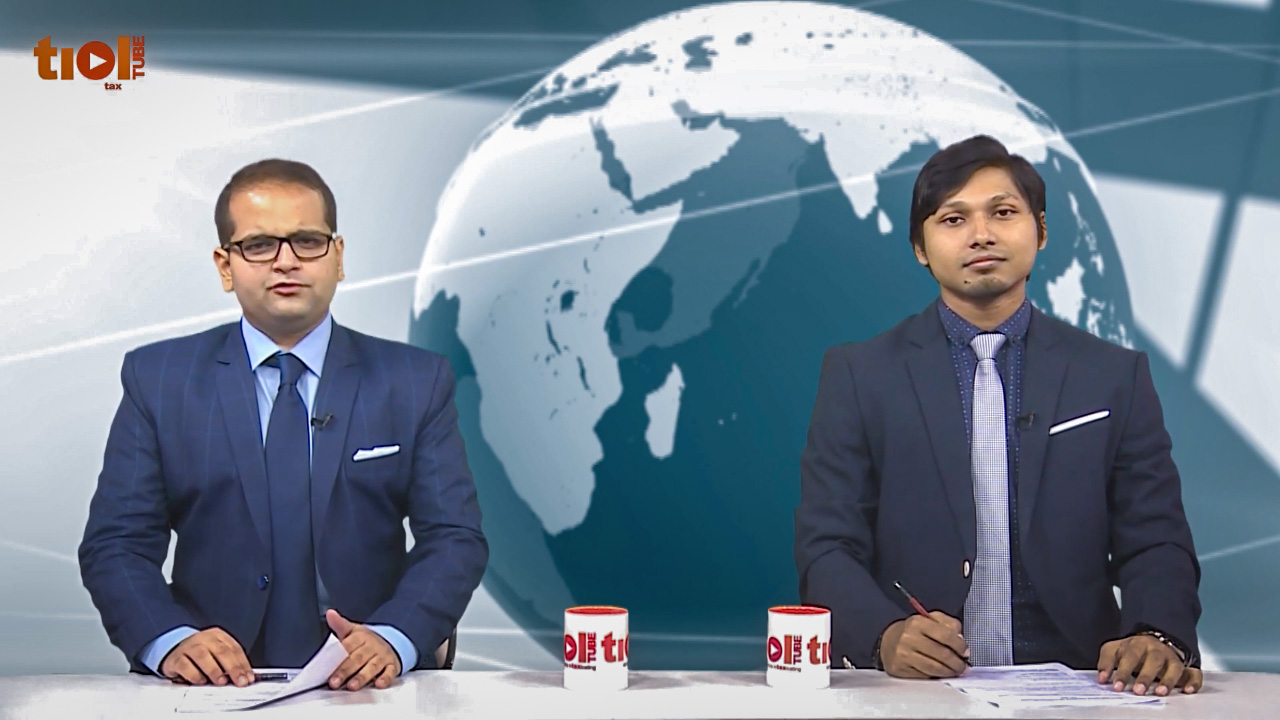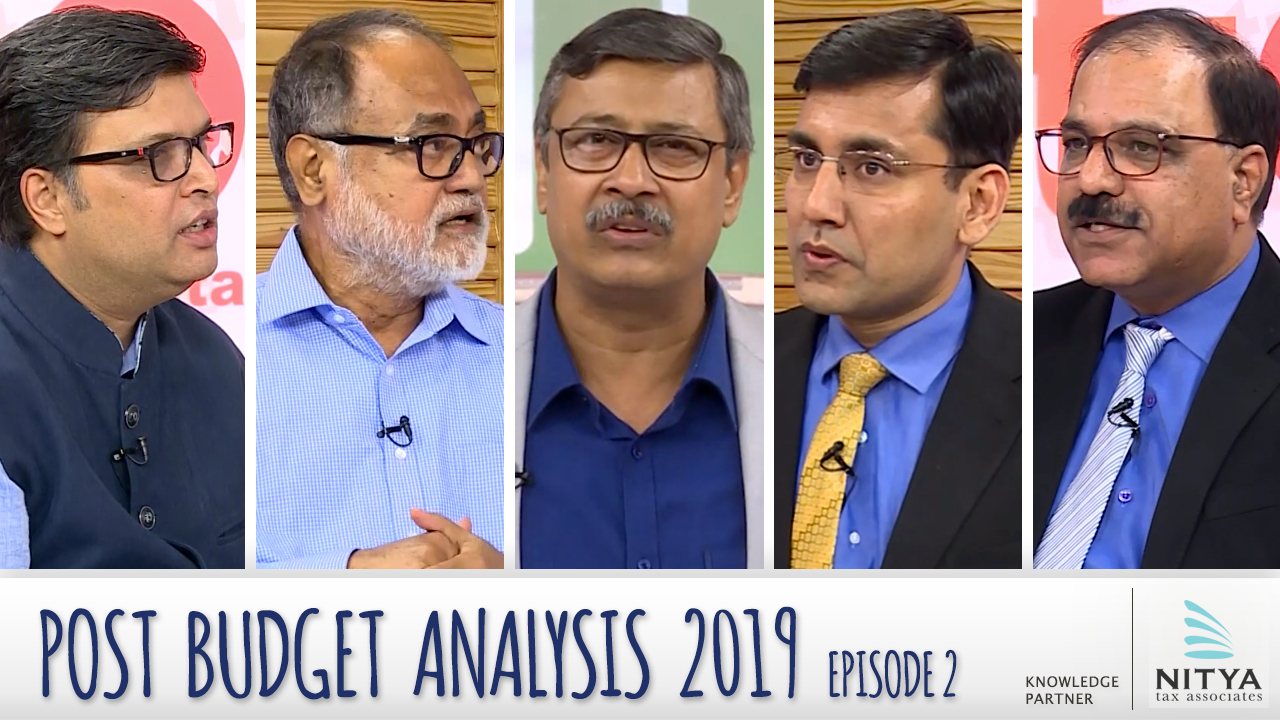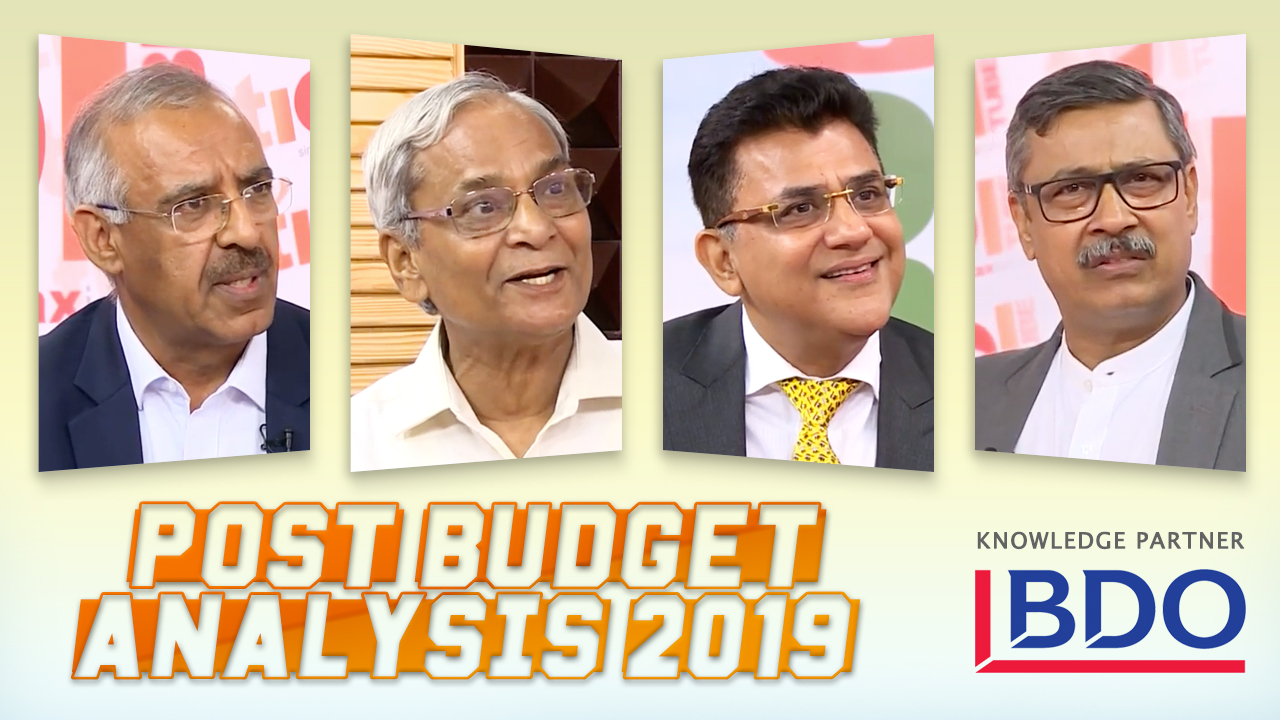|
SERVICE TAX
2019-TIOL-2148-CESTAT-KOL
Janton Vs CCGST & CE
ST - The assessee is a Partnership firm mainly engaged in tailoring and dress making - During period from 2007-08 to 2011-12, the assessee was also engaged in renting a part of its business premises - They were also receiving commission for consignment sale of textile materials/garments of various brands - Further, assessee availed services of Goods Transport Agency - A SCN was issued - Regarding the demand under "Business Auxiliary Service", assessee firm had entered into the Commission Agency Agreement with M/s. Arvind Clothing Ltd., vide Agreement and another Agreement with M/s. Arvind Fashion Ltd., vide agreement dated 01.06.2004 - Since the assessee have not collected any Service Tax from the person to whom the services were provided, Cum Tax benefit should be given while calculating the Service Tax liability under this category - Further, the Cenvat Credit on input services used for providing the aforesaid output service is also allowable; since the entire details have been provided by assessee and also filed before the Lower Authorities - Regarding the liability of Service Tax under category of "Renting of Immovable Property Service," the assessee have not collected Service Tax from the tenants and hence, Cum Duty Benefit has to be given while calculating the service tax liability under this category - Further, abatement of 75% on freight paid was allowed in SCN - After calculating the Service liability under all the categories and complying with the observations made by Bench in foregoing paragraphs, the demand may be communicated to assessee - Further, the amount of Rs.13,87,701/- as paid by assessee should be appropriated against the demand, so calculated - However, as the issues involved interpretation of statutory provisions, and the fact that the payments have been made for undisputed amount of Service Tax and the Department being aware of it, therefore, it is not a fit case for imposition of penalties - The appeal is remanded to the Adjudicating Authority for the limited purpose of Re-computation of the Service Tax liability under the various categories: CESTAT
- Matter remanded: KOLKATA CESTAT
2019-TIOL-2147-CESTAT-HYD
AB Associates Vs CCT
ST - The assessee is engaged in providing Cargo Handling Services and Port services - Admittedly, for Financial Year 2014-15 they have not discharged their total service tax liability - A SCN was issued to assessee demanding differential service tax for the period October, 2014 to March, 2015 in terms of section 73(1) of FA, 1994 - It was also proposed to appropriate the amounts already said to have been paid by them against this demand - As far as the contention of assessee that section 73(1B) of FA, 1994 applies to them is concerned, this was inserted w.e.f. 14.05.2015 and there is no indication, whatsoever, in this sub-section that it is meant to have retrospective application - It is a well settled legal position that fiscal statutes always have prospective application unless a contrary intention appears in statute itself - In this case, there is no indication of such application and therefore, section 73(1B) applies only w.e.f. 14.05.2015 and not to earlier cases such as the present one - Therefore, the original authority as well as the first appellate authority were correct in holding that section 73(1B) does not apply - The second issue of original authority considering only the original return and not the revised one or return for the financial year 2015-16 in which details of payments for earlier financial year have been indicated are concerned, the assessee was correct as can be seen from order of lower authority - Along with this appeal, assessee has filed a copy of ST-3 return for year 2015-16 which does indicate some amounts paid through challans at Sl.No.H2 as "payments towards arrears" - These amounts need to be reckoned while deciding the tax liability by assessee - Had the assessee submitted copies of this return before original authority and First Appellate Authority they could have avoided unnecessary litigation in appeal to that extent - Matter is remanded back to the original authority to consider the challans and the ST-3 returns filed by assessee including revised ST-3 returns for 2014-15 and ST-3 returns for the financial year 2015-16 and re-determine the tax liability, interest and penalties, if any: CESTAT
- Matter remanded: HYDERABAD CESTAT
CENTRAL EXCISE
2019-TIOL-2146-CESTAT-MUM
Automotive Stampings And Assemblies Ltd Vs CCE
CX - The assessee is engaged in manufacture of motor vehicle parts - During disputed period, assessee was manufacturing and supplying goods to M/s Tata Motors on job work basis - For undertaking the job work activities, the principal manufacturer had provided steel items free of cost to assessee and only paid the job charges to the assessee - After completion of assigned job work, the goods were cleared by assessee on payment of central excise duty - It was noticed by department that scrap generated out of free supply raw material was sold by assessee and the proceeds were retained with them - It was further noticed that assessee had not included amortized value of the moulds/dies received free of cost from principal manufacturer in the job charges and central excise duty liability was not discharged thereon - In terms of Rule 4(5)(a) of CCR, 2004, the manufacturer of final product is permitted to take credit on inputs received in its factory and send the same to the job worker for the manufacture of intermediate product, for use in the manufacture of the ultimate final product - In such a situation, the job worker who manufactures the intermediate product is not liable to pay any duty - Thus, the principal manufacturer M/s Tata Motors could have followed the procedure prescribed under Rule 4(5)(a) ibid and the assessee could have manufactured the finished product out of the inputs supplied on job work basis and return the same without payment of duty - In such eventuality, the differential duty cannot be demanded in terms of procedures prescribed under Cenvat statute - The issue regarding demand of differential duty on sale of scrap has been settled in favour of assessee by the decision of Tribunal in case of P.R. Rolling Mills - 2009-TIOL-2575-CESTAT-BANG, which has been affirmed by Supreme Court - In the said case, the Tribunal by relying upon the judgment of Supreme Court in case of General Engineering Works - 2005-TIOL-187-SC-CX has held that raw material supplier could have followed the procedure prescribed under Rule 4(5)(a) ibid, under which no duty was required to be paid by the raw material supplier - Accordingly, the appeal was decided in favour of the said assessee holding that value of scrap need not be included in assessable value of the product and cleared by the job worker - With regard to issue of inclusion of amortized value of moulds and dies in the job charges, assessee had accepted the duty liability and not contested the duty demand confirmed against it - Further, assessee has not specifically urged any ground to contest such demand confirmed against it - Therefore, the duty demand on such ground has been rightly confirmed by the authorities below - No merits found in the impugned order, so far as it upheld confirmation of adjudged demand of duty, interest and penalty on assessee on sale of scrap items - Accordingly, the impugned order to such extent is set aside and the appeal is allowed in favour of assessee - However, the impugned order sustains, to the extent, it upheld confirmation of demand on account of inclusion of amortized value of moulds and dies in the job charges: CESTAT
- Appeal partly allowed: MUMBAI CESTAT
2019-TIOL-2145-CESTAT-ALL
LG Electronics India Pvt Ltd Vs CCE
CX - The assessee-company is a major manufacturer of electronic items - It claimed refund of duty paid upon finalization of provisional assessment - On adjudication, partly allowed the refund claimed by the assessee - On appeal, the Commr.(A) sustained the order passed by the adjudicating authority, allowing the entire amount of refund claimed - However, the Commr.(A) disallowed the interest claimed by the assessee u/r 7(5) of the CER 2002 - Hence the assessee's appeals.
Held: From a plain reading of Rule 7(5), it is evident that if any amounts are to be refunded as per the order of finalization of provisional assessment, the same must be refunded with interest from the first day of the month succeeding the month for which such refund is determined till the date of the refund at a rate which is as prescribed as per the Notfn issued u/s 11BB of the CEA 1944 - The grounds taken by the Commr.(A) are untenable because the adjudication proceedings are for finalization of provisional assessment, which is a separate realm governed by Rule 7 of the CER 2002 - This rule provides for determination of amounts due or refunded as well as for payment of interest - Hence the Commr.(A) unjustifiably equated such proceedings with denial of refund with the adjudication proceedings u/s 11B - When interest is by way of operation of law, it needs to be paid as per the provisions stated in law: CESTAT
- Assessee's appeals allowed: ALLAHABAD CESTAT
2019-TIOL-2144-CESTAT-MAD
Central Machine Shop Vs CGST & CE
CX - During the relevant period, the officers from the Preventive Unit visited the premises of the second assessee, whereupon a number of machines were observed, packed in wooden and gunny cases - On enquiry, it was found that the machines were battery-making machines belonging to the first assessee - The second assessee claimed to have no knowledge of the nature of the machines & had not obtained permission to receiver or store such goods in its premises - It was alleged that the first assessee would clear such machines & parts to the second assessee under delivery challans without payment of duty - The machines & parts were received for storage purposes & would be returned to the first assessee whenever required - The goods were seized - The Revenue opined that the first assessee had not the permission to remove and store non-duty paid goods at the premises of the second assessee - The first assessee was also found to have not furnished the appropriate value of the goods - Hence it was inferred that the goods had been removed without payment of duty - SCN was issued to the first assessee, proposing demand for differential duty, confiscation of goods seized from the premises of the second assessee & imposing penalty - Later, a corrigendum to SCN was issued, hiking the quantum of duty demand and value of seized goods - On adjudication, the proposals in the SCN were confirmed, albeit with option of redemption fine being given - The assessee then approached the Tribunal, which remanded the matter - Thereafter, the adjudicating authority re-iterated the demands - Hence the present appeals.
Held: The goods were being stored outside the factory premises of the first assessee - They were this only being stored in the premises of its sister unit - Removal of goods had been recorded in the RG-1 returns filed by the first assessee - There is no allegation that all or some of the goods so shifted were clandestinely removed or diverted without payment of duty - The first assessee in fact paid duty on the machines manufactured by it, albeit on a notional value - The appropriate duty was paid on the actual value upon clearance of the complete machinery - Besides, such duty amount paid on provisional basis based on the notional value was higher than the enhanced duty demand proposed - There was nothing mala fide about the practice followed by the first assessee - Though specific permission for such removals was not obtained, it cannot be denied that the assessee had got their ground plan endorsed with a portion approved by the jurisdictional Range Superintendent for storing machineries - While there was a procedural lapse in not having followed the correct protocol for removal of such goods, the same could have been resolved by issuing a suitable warning or advice - Hence the O-i-O is unsustainable: CESTAT
- Assessees' appeals allowed: CHENNAI CESTAT
CUSTOMS
2019-TIOL-2143-CESTAT-MAD
Rajaram Johra Vs CC
Cus - The officers of Enforcement Directorate searched Hotel Room occupied by one Rajaram Johra at Hotel Dasaprakash, Chennai and effected seizure of 22 Nos. of gold biscuits each weighing 10 totals with foreign markings which were kept concealed in sofa and in bathroom - Undisputedly the goods were seized on 22.4.1992 - The market value of the gold at the time of seizure was Rs.7,35,247.81 - The Commissioner (A) has interfered with the market value of goods so as to enhance the same taking into consideration the prevailing rate of gold as on 29.4.2009 i.e. the date of passing the impugned order - The matter has been in litigation for a long period - As per proviso to sub-section (1)of Section 125, the redemption fine is to be fixed on the basis of market value - The said provision does not speak about the relevant period/date for arriving the market value - Be that as it may, time consumed in litigation cannot be a factor for deciding the redemption fine that has to be paid by assessee - Thus, the date of seizure would be the basis for arriving the market value of goods and for fixing the quantum of fine - When the redemption fine is imposed, the relevant date for fixing the redemption fine should be the market value of goods prevailing at the time of seizure and not at the time of passing the order - The Five Member Larger Bench of Tribunal had addressed the very same issue in case of Omex India - 2002-TIOL-372-CESTAT-DEL-LB - It was held that the market price at the time of importation has to be taken into consideration for calculating the fine that has to be paid for redeeming the goods - Assessee is liable to pay redemption fine on the market value of goods as it stood at the time of seizure which is Rs.7,35,247.81 - Assessee has not disputed the value of goods arrived by department at the time of seizure of goods - The Commissioner (A) has held that the margin of profit would range from 30% to 50% - Therefore, the redemption fine is reduced to Rs.3,70,000/-: CESTAT
- Appeal disposed of: CHENNAI CESTAT
2019-TIOL-2142-CESTAT-MUM
Kapila Knit Fabrics Pvt Ltd Vs CC
Cus - Confirmation of duty demand along with confiscation of goods under section 111 (e) & 111 (m) of Customs Act, 1962 with option for redemption on payment of fine for alleged mis-declaration of woven fabric is assailed in present appeal - Goods were originally imported by another concern and the description of goods were mixed fabrics and it is at the instance of assessee that goods were put to test for ascertainment of its description and classification, that was done before the goods were cleared for own consumption - The entire case of Department is based on collection of samples from assessee's Warehouse on the basis of identification made by one employee Shri Rajbir Singh, who was not subjected to cross examination by assessee despite it's request for such cross examination - No other relationship was established by Department to substantiate that the goods seized by DRI was in fact related to goods cleared to assessee through the disputed Bill of Entry - SCN reveals that DRI Officials made visual examination of goods and ascertained that they comprised of 7 different verities/types of fabrics - It is not understood as to why after such discovery, Customs Officials who drew the samples for first check examination were not examined and why reliance is placed on only examination if assessee's staff to find out the error in First Examination Report - It is a settled principle of law that even in such situation, when two different opinions can be formed from contradictory evidence, the opinion that is favourable to the offender is to be accepted - There is nothing available on record to substantiate that the samples drawn by DRI Officials were the representative samples of consignment cleared in disputed Bill of entry except the statement of that Shri Rajbir Singh whose veracity is not tested through cross-examination nor any opportunity was provided to assessee to falsify such statement - No credence can be attributed to such a statement to penalise the assessee with additional burden of duty liability and penalty: CESTAT
- Appeals allowed: MUMBAI CESTAT |
|









